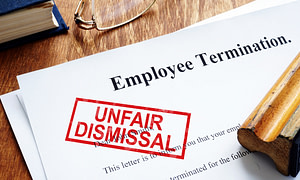Can I make an employee redundant?
Legal requirements & obligations
In Australia, you can make an employee redundant under certain circumstances, but there are legal requirements and obligations that you must follow. Redundancy is when a job is no longer required to be performed by anyone, typically due to changes in the business, organisational restructuring, or other operational reasons. When making an employee redundant, you should consider the following key points.
- Consultation: You should consult with the affected employees and their representatives (if any) about the impending redundancy. Consultation is a legal requirement and should be genuine and meaningful.
- Fair selection process: If you need to select employees for redundancy, it should be done fairly and based on objective criteria. Common criteria include skills, performance, and qualifications.
- Notice and payment: You should provide the affected employees with appropriate notice of redundancy or payment in lieu of notice. The notice period and redundancy pay may vary based on the employee's length of service and the applicable industrial instrument (e.g., award or enterprise agreement).
- Redundancy pay: In Australia, eligible employees are entitled to redundancy pay if they have completed a certain period of continuous service with the employer. The redundancy pay is calculated based on the employee's length of service and other factors. This is governed by the Fair Work Act 2009.
- Alternative employment: You should make reasonable efforts to explore alternative employment options within the company for the affected employees before making them redundant.
- Consultation with employee representatives: If you are making more than 15 employees redundant, you may also have obligations to consult with employee representatives and notify the Fair Work Commission.
- Unfair dismissal: It's important to ensure that the redundancy is genuine and not a disguised form of unfair dismissal. Unfair dismissal laws in Australia protect employees from being dismissed unfairly, even in the context of a redundancy.
- Compliance with awards and agreements: Ensure that you comply with any relevant industry awards or enterprise agreements that may impose additional requirements for redundancy.
- Legal advice: It's advisable to seek legal advice or consult with an HR professional to ensure you are complying with all relevant laws and regulations.
The rules and regulations surrounding redundancy in Australia can be complex, and they may vary depending on the state or territory you operate in and the specific circumstances of the redundancy. Therefore, it's important to be familiar with the applicable laws and to consult with legal or HR professionals to ensure you are following the correct procedures.
Considering outplacement?
Now that you better understand the circumstances under which you can make an employee redundant, you should take a moment to check out our outplacement services.
Our experience in recruitment means we know the ins and outs of the job market and can provide candidates with solid career advice.
So, if you're considering making staff redundant and would like to provide them with personal and professional support, click the button below to learn more about our services.
Interested in outplacement?






















